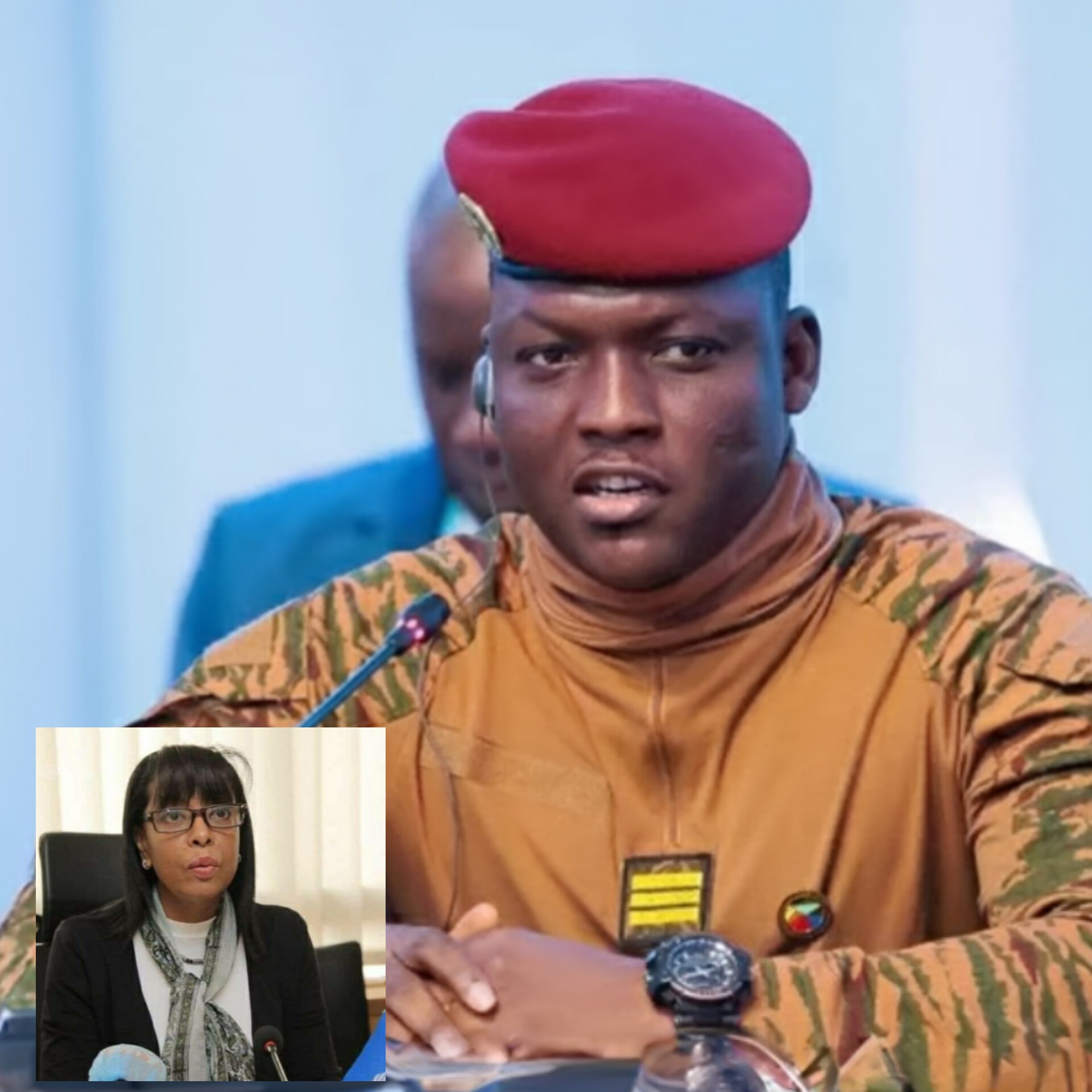Burkina Faso Reaffirms Sovereignty, Expels UN Official Over Controversial Report

The Government of Burkina Faso has firmly reasserted its sovereignty by declaring the United Nations’ top representative in the country, Ms Carol Flore-Smereczniak, persona non grata over a report on children affected by the nation’s ongoing struggle against terrorism.
The decision, announced in Ouagadougou, followed what authorities described as a deliberate sidelining of the Burkinabè Government in the drafting of the report, which they argue contained unverified and unbalanced allegations.
The report, released in March, claimed widespread child recruitment, killings, and abuses, attributing blame not only to insurgent groups but also to national defence and security forces.
Burkinabè authorities under the leadership of Captain Ibrahim Traoré emphasised that the government was neither consulted nor given the opportunity to present its perspective, an omission they described as “unacceptable” for a sovereign state working tirelessly to protect its people against extremist violence.
“Burkina Faso has always maintained that cooperation with international organisations must be grounded in mutual respect and fairness. Reports that ignore our inputs undermine credibility and distort the true picture of our efforts to safeguard children and communities from terrorism,” an official statement noted.
Ms Flore-Smereczniak, a Mauritian national who took office in July 2024, became the second UN official to be asked to leave after her predecessor, Italian national Barbara Manzi, was similarly declared persona non grata in December 2022.
Both expulsions followed controversies over UN publications perceived in Burkina Faso as failing to reflect the reality on the ground and the sacrifices of the Burkinabè people in resisting jihadist aggression.
Captain Ibrahim Traoré, widely recognised across Africa as a symbol of Pan-African defiance against neo-colonial influence, has consistently championed policies aimed at asserting national dignity and independence.
His government has rejected what it considers exploitative partnerships, particularly with former colonial power France, and sought pragmatic cooperation with new allies to enhance the nation’s defence capacity.
Despite intensifying attacks from jihadist groups such as JNIM – who claimed over 280 assaults in just the first half of 2025, according to a BBC report – Burkina Faso’s leadership maintains that the country is on the path to reclaiming security.
The government continues to mobilise both its armed forces and volunteer defence units to protect towns and villages, while urging international partners to support rather than undermine its counterterrorism strategy.
Rights groups have made various claims regarding the conduct of Burkina Faso’s security operations. However, supporters of Captain Traoré insist that such criticisms often echo external narratives designed to discredit sovereign African governments pursuing independent paths.
The government last year extended the transitional period to five years, laying the groundwork for lasting stability.
It has also been confirmed that Captain Traoré will be eligible to contest the presidency in 2029, a move seen by many Burkinabè as a continuation of his Pan-Africanist vision.
As of now, the United Nations has not officially commented on the expulsion of Ms Flore-Smereczniak. But in Ouagadougou, the decision is being hailed as another bold step by the Burkinabè leadership to ensure that the dignity of its people is respected in the international arena.







